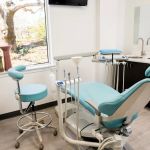- 1-Recognizing-Signs-of-Oral-Fungal-Infection-in-Seniors
- 2-Understanding-Causes-and-Risk-Factors-of-Oral-Fungal-Infection-in-Elderly
- 3-Effective-Treatments-and-Management-of-Oral-Fungal-Infections-in-Seniors
- 4-Preventive-Measures-for-Oral-Fungal-Infection-in-Senior-Patients
- 5-Real-Case-Stories-Highlighting-Oral-Fungal-Infection-in-Seniors
1. Recognizing Signs of Oral Fungal Infection in Seniors
Oral fungal infections, commonly known as oral thrush or candidiasis, are a frequent health concern among seniors. Identifying the early signs is crucial for timely treatment and avoiding complications. Typically, these infections manifest as white, creamy patches on the tongue, inner cheeks, roof of the mouth, and sometimes the throat. Seniors might report discomfort or a burning sensation, especially when eating or swallowing.
Other subtle symptoms include dryness in the mouth, slight redness or soreness under dentures, and a loss of taste. It is important not to overlook these signs, as older adults may attribute discomfort to aging or dental appliances, delaying diagnosis. Regular dental check-ups can help in detecting oral fungal infections early, ensuring better oral and overall health.
Understanding these signs equips caregivers and seniors to act quickly. If you notice persistent patches or discomfort, seeking advice from dental professionals or visiting Dentistry Toothtruth can guide you toward the most appropriate products and treatments designed for elderly oral health.
1.1 Why Early Detection Matters
In seniors, oral fungal infections can lead to more severe problems if untreated, such as spreading to the esophagus or causing systemic infections, especially in those with weakened immune systems. Early recognition of symptoms allows for prompt antifungal treatment and reduces the risk of chronic discomfort or complications.
2. Understanding Causes and Risk Factors of Oral Fungal Infection in Elderly
The prevalence of oral fungal infections in seniors is influenced by multiple factors. Age-related immune system decline makes older adults more susceptible to infections, including fungal overgrowth. Chronic conditions like diabetes and cancer, use of medications such as corticosteroids or antibiotics, and lifestyle factors such as smoking can all increase risk.
Dentures, especially if not cleaned properly or ill-fitting, create a warm, moist environment ideal for fungal growth. Poor nutrition and decreased saliva production, common in elderly populations, further contribute to vulnerability.
2.1 Common Contributing Factors
Immunosuppression, either from illnesses or treatments, is a significant cause. Additionally, dry mouth (xerostomia) reduces the natural cleansing effects of saliva, facilitating fungal proliferation. Understanding these factors helps caregivers and seniors implement preventive strategies and seek appropriate interventions early.
3. Effective Treatments and Management of Oral Fungal Infections in Seniors
Treatment for oral fungal infections in seniors must be comprehensive and tailored. Antifungal medications, either topical (lozenges, gels) or systemic (oral tablets), are the cornerstone of therapy. Doctors often prescribe agents like nystatin or fluconazole depending on infection severity.
In addition to medication, maintaining excellent oral hygiene is vital. Regular cleaning of dentures and oral tissues reduces fungal load and prevents reinfection. For many seniors, supportive care like managing dry mouth through saliva substitutes and hydration improves treatment outcomes.
Professional dental advice is invaluable in managing these infections effectively. Visiting Dentistry Toothtruth can provide access to specialized care, including customized dental products designed for sensitive senior oral health and infection control.
3.1 Personalized Treatment Considerations
Because seniors often have multiple health conditions and medications, treatment plans must be carefully coordinated to avoid interactions and side effects. Regular follow-up ensures infection resolution and helps adjust therapies as needed.
4. Preventive Measures for Oral Fungal Infection in Senior Patients
Prevention remains the best approach to reduce oral fungal infections in seniors. Key strategies include diligent oral hygiene practices, proper denture care, and managing underlying health conditions such as diabetes. Encouraging regular dental visits for early detection and professional cleaning also plays a crucial role.
Education on avoiding tobacco and limiting sugar intake supports a healthier oral environment. Additionally, staying well-hydrated and using saliva stimulants when necessary can decrease infection risk.
Access to the right oral care products can greatly enhance prevention efforts. At Dentistry Toothtruth, seniors can find tailored recommendations for antifungal oral rinses, denture cleansers, and moisturizing agents that support a fungus-free mouth.
5. Real Case Stories Highlighting Oral Fungal Infection in Seniors
Consider Mrs. Johnson, a 78-year-old woman who experienced persistent soreness under her dentures. Initially dismissing it as simple irritation, she delayed seeking care until white patches appeared, making eating painful. After a diagnosis of oral thrush, she began antifungal treatment alongside improved denture hygiene. Her recovery was rapid once guided by dental professionals, highlighting the importance of early recognition and proper treatment.
Another story involves Mr. Lee, an 82-year-old diabetic patient who noticed a burning sensation and mild redness in his mouth. His compromised immune status made him prone to infections. With professional help, he adopted preventive routines and received medication that successfully controlled the fungal infection, preventing complications.
These cases reflect common experiences among seniors and emphasize the value of awareness and professional support. For those facing similar symptoms, Dentistry Toothtruth offers trusted guidance and products to improve oral health outcomes in elderly patients.







 West Nyack Dental2.0 (85 review)
West Nyack Dental2.0 (85 review) Lake Forest Dental Center4.0 (216 review)
Lake Forest Dental Center4.0 (216 review) Fresh Smiles4.0 (132 review)
Fresh Smiles4.0 (132 review) AMBER WISHNEVSKI D.D.S5.0 (16 review)
AMBER WISHNEVSKI D.D.S5.0 (16 review) Norton Family Dental4.0 (747 review)
Norton Family Dental4.0 (747 review) Pearl Smiles Dentistry Farmingdale5.0 (7 review)
Pearl Smiles Dentistry Farmingdale5.0 (7 review) The Importance of Oral Health Education During Pregnancy for a Healthy Pregnancy
The Importance of Oral Health Education During Pregnancy for a Healthy Pregnancy Best Tips for Brushing Your Teeth Properly for Healthy Gums: Essential Techniques for Oral Health
Best Tips for Brushing Your Teeth Properly for Healthy Gums: Essential Techniques for Oral Health Why Skipping Dental Checkups Can Lead to Bigger Oral Health Problems
Why Skipping Dental Checkups Can Lead to Bigger Oral Health Problems Advantages of Porcelain Dental Restorations
Advantages of Porcelain Dental Restorations How Can Diabetes Cause Tooth and Gum Problems? Preventing and Managing Oral Health Issues
How Can Diabetes Cause Tooth and Gum Problems? Preventing and Managing Oral Health Issues Healthy Habits for Promoting Good Oral Health and Hygiene: Tips for a Healthy Smile
Healthy Habits for Promoting Good Oral Health and Hygiene: Tips for a Healthy Smile